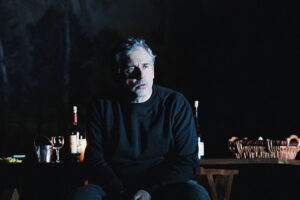
The centennial observances of Gustav Mahler’s death have not turned up a surfeit of newly discovered performances, probably because his symphonies and song cycles have long been a calling card for serious artists and record labels. Though the industry archives may be picked clean, the estates of dead musicians are at least starting to kick off some previously unheard takes on the master’s work.
On the leading edge is a new Deutsche Grammophon release of the symphonic song cycle Das Lied von der Erde featuring an original ORF (Austrian Radio) tape of a 1964 Vienna Festival performance provided by the family of the late conductor Josef Krips.
Though the packaging and accompanying booklet make much of the estimable maestro, best known for his sunny Mozart performances, it’s the presence of baritone Dietrich Fischer-Dieskau and tenor Fritz Wunderlich that make the release noteworthy and deserving of consideration.
Mahler’s Zen-like meditation on leave-taking is customarily performed by a tenor paired with a mezzo soprano or contralto, an arrangement that tends to highlight contrasts in the work’s singing line. Kathleen Ferrier and Dame Janet Baker were two great interpreters who did much to cement this option as accepted modern performing practice. The right type of baritone can, however, inject a somber and weighty note that draws out the melancholy mood and pain of eternal separation articulated in the piece.
Anyone who’s heard Fischer-Dieskau’s Decca recording of Das Lied with Leonard Bernstein knows this is the right singer for such an angst-ridden composition. The great art-song interpreter sounds utterly tapped out and gripped with despair in the second of the work’s six songs, “Der Einsame in Herbst,” as he chokes out the lines “Mein Herz is mude, mein kleine Lampe erlosch mit Knistern” (“My heart is weary, my little lamp has sputtered out”).
There’s a slightly more detached quality to his interpretation here of the famous Abschied that comprises the last 30 minutes of the work — a resigned matter-of-factness that strikes the listener in the way he approaches phrases such as “Du, mein Freund, mir war auf dieser Welt das Gluck nicht hold!” (“O my friend, fortune did not smile on me in this world!”) The only flaws in his performance may be in the the fourth song, “Von der Schonheit,” that features a rapid-fire narrative describing young men recklessly riding horses along a riverbank. Long a land mine for the most accomplished singers, it devolves here into a series of barks and near-shouts.
If Fischer-Dieskau comes off as cooly elegant, Wunderlich is ardent and committed, bringing a lustrous sound to the opening drinking song and its thrice-repeated refrain “Dunkel ist das Leben, is der Tod” (“Dark is life, dark is death”). Wunderlich doesn’t have have the pipes or dramatic inclinations of a James King or Peter Schreier (the latter sounded convincingly drunk by the end), but his lyricism and loving treatment of the text are a delight, especially when juxtaposed with the prominent orchestral woodwind passages.
Krips, for his part, delivers a brisk, no-nonsense performance that’s all about supporting his vocalists. There’s little lingering or milking of sentiment, and the pacing shows how connected the third, fourth and fifth songs are. While not altering the tone or interpretation much from section to section is an absolutely valid approach, it runs the risk of not quite getting to the work’s dark core in the way an Otto Klemperer or a Bernstein does.
The kaleidoscopic nature of Mahler’s score, with its Oriental influences and dissonant instrumental solos, is captured here by the Vienna Symphony, a second-tier band that seems to respond to the specialness of the event.
The remastered sound isn’t great throughout but documents the bloom of Wunderlich’s tenor in the first song and many of the more intimate moments of Fischer-Dieskau’s delivery. One could make a case that the sonics and overall performance don’t quite reach the heights of Wunderlich’s recording of Das Lied with Klemperer and Christa Ludwig or Fi-Di’s 1966 account under Bernstein with James King. But DG brings the two together in a memorable one-off event—reason enough to snap up this release.
























Comments